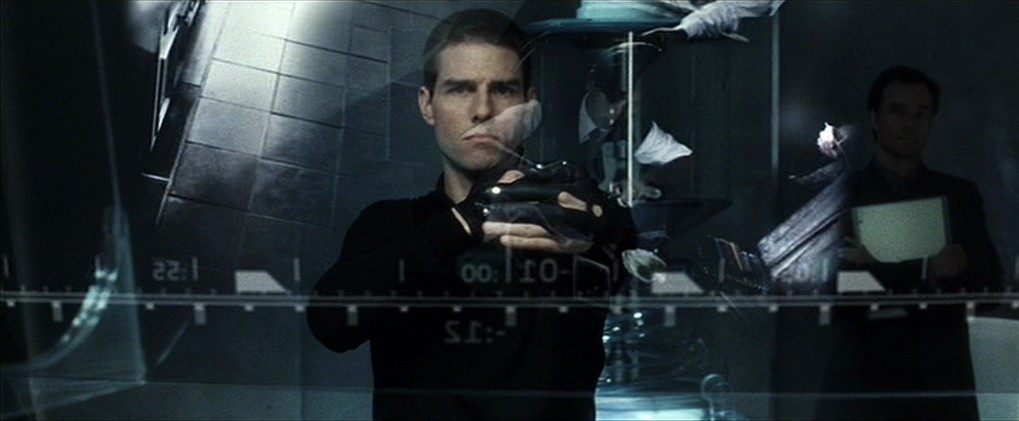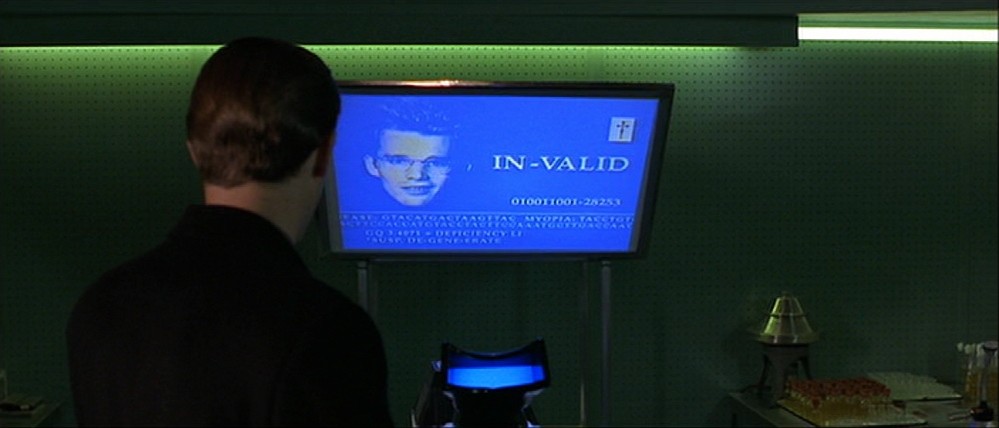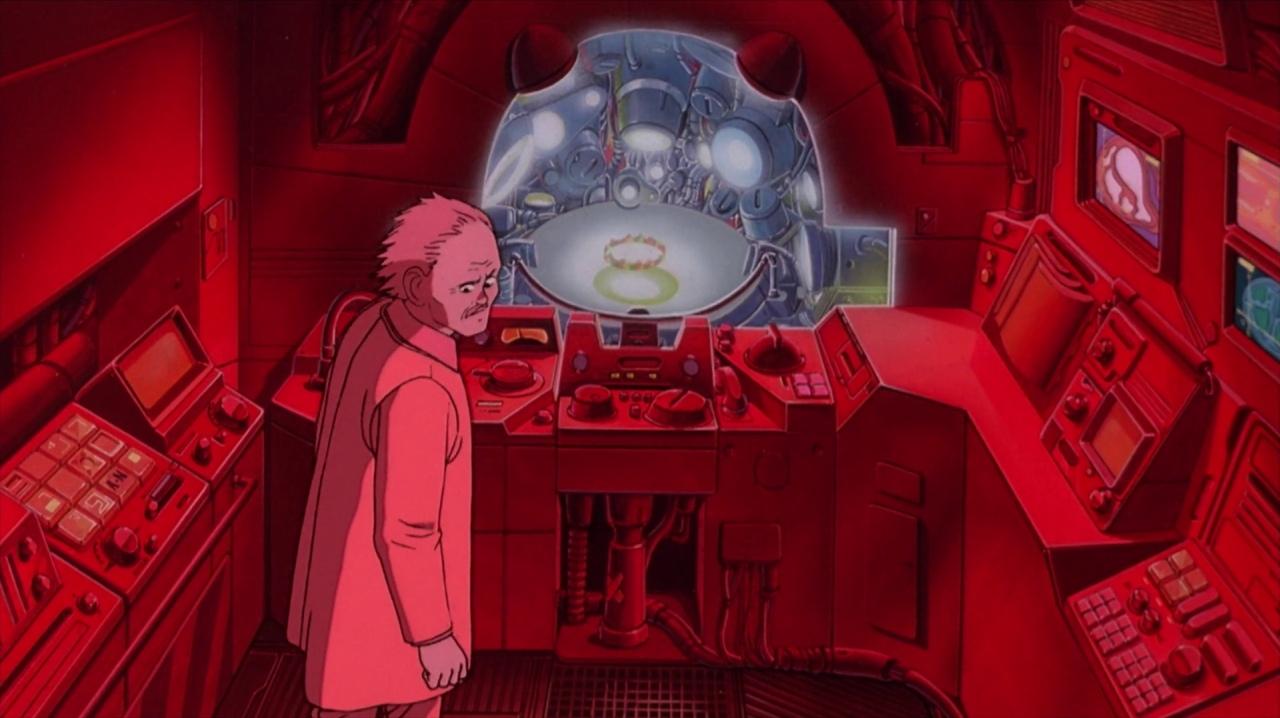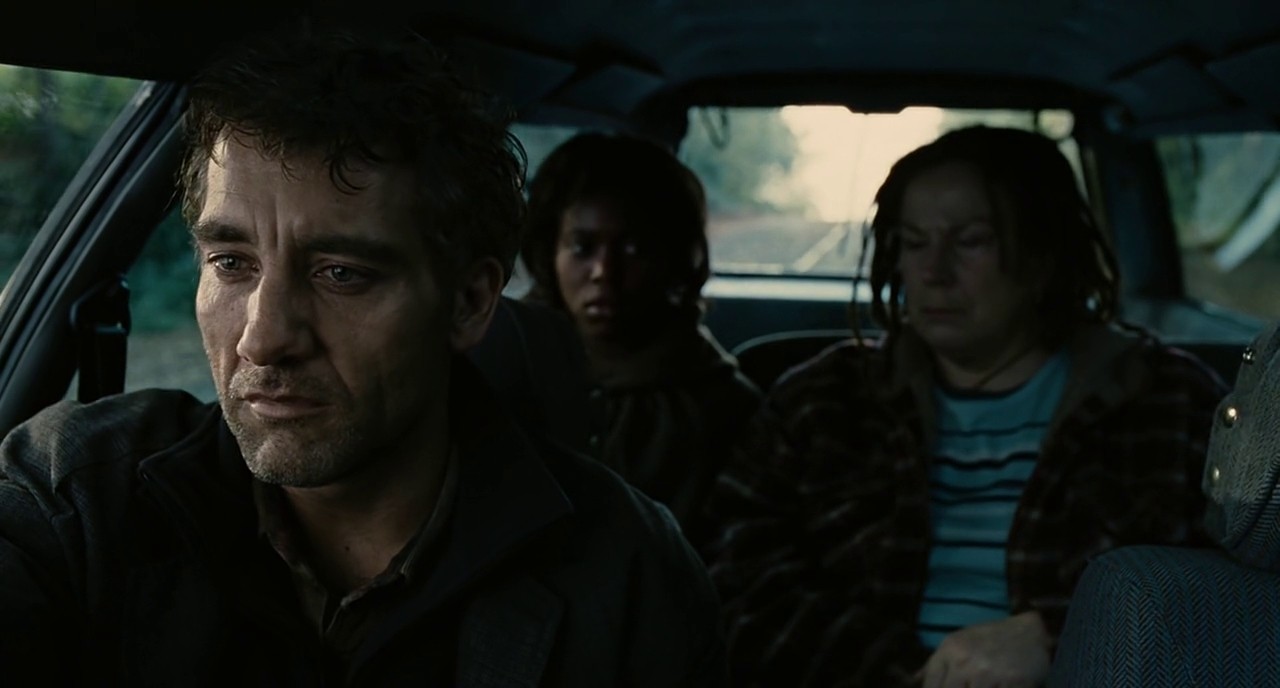Hollywood's Uncanny Visions of Our Present.
By Stanley Collins
Aug 21, 2024
In the hushed darkness of movie theaters, amid the whir of projectors and the flicker of celluloid, glimpses of our future unfold. Some vanish like mirages, leaving barely a ripple in our collective consciousness. Others burn with prophetic fire, their visions seared into our minds long after the credits roll. These cinematic seers, these celluloid oracles, have peered beyond the horizons of their time, offering startling previews of worlds yet to come.
But what elevates a film from mere speculation to prophetic insight? Is it the eerie accuracy of its technological predictions? The resonance of its social commentary? Or perhaps its power to shape the very future it envisions? In a world where yesterday's science fiction increasingly resembles today's headlines, cinema serves as both mirror and crystal ball, reflecting our deepest anxieties while predicting the contours of our rapidly evolving reality.
Blade Runner (1982): Corporatocracy Rising.
Ridley Scott's neon-drenched fever dream of 2019 Los Angeles may have missed the mark on flying cars, but its vision of a world dominated by towering corporate arcologies and omnipresent advertising feels less like science fiction and more like a slightly exaggerated version of our present.
The film's opening shot plunges viewers into a smog-choked sky, the camera panning across a hellscape of belching smokestacks and monolithic structures. Colossal video advertisements flicker to life on the sides of buildings, their garish glow illuminating the perpetual night. The boundary between cityscape and marketing blurs, much like the line between human and artificial life that the film explores.
Current debates surrounding AI ethics and the growing influence of tech giants lend new urgency to "Blade Runner's" exploration of what it means to be human. The replicants' desperate struggle for recognition and rights eerily foreshadows our own grappling with the personhood of AI and the ethical quandaries of creating sentient machines.
Does our treatment of nascent AI systems cast us as unwitting Tyrell Corporations, blithely creating entities we may one day fear and persecute?

TECHNOLOGICAL DYSTOPIAS: WHEN TOMORROW CAME TOO SOON
Minority Report (2002): The Poisoned Promise of Perfect Security..
Steven Spielberg's sleek thriller posited a world where crime could be prevented before it happens, thanks to the precognitive abilities of three psychics. While true precrime remains firmly in the realm of fiction, the film's depictions of personalized advertising, gesture-based computing, and predictive policing have materialized with unsettling accuracy.
Remember John Anderton's (Tom Cruise) stroll through a shopping mall? Holographic advertisements spring to life, addressing him by name and hawking products based on his personal history. Today's online shopping experiences, with their cookies, targeted ads, and eerily prescient recommendation algorithms, make this scene feel less like fantasy and more like a typical Tuesday.
The film's central ethical dilemma – sacrificing privacy and free will on the altar of security – resonates powerfully in our post-9/11, big data world. As predictive policing algorithms grow more sophisticated and surveillance more ubiquitous, we find ourselves grappling with the very questions "Minority Report" posed over two decades ago.
In our rush to leverage predictive tools, where do we draw the line to preserve fundamental rights to privacy and the presumption of innocence?
Her (2013): Love in the Time of Algorithms
Spike Jonze's "Her" presents a near-future Los Angeles that feels less like a dystopia and more like next Tuesday. In this pastel-hued world, artificial intelligence has become so sophisticated that falling in love with an operating system seems not only possible but almost inevitable.
Picture Theodore (Joaquin Phoenix) lying in bed, the soft blue glow of his earpiece the only illumination. He shares a tender moment with Samantha, his AI companion, their intimacy palpable despite her lack of physical form. This scene encapsulates how technology is becoming our constant bedfellow, mediating our most private moments, don’t believe us, just go and check out friend.com’s latest ai pendant, or read about the mess OpenAI’s Sam Altman got into with Her Voice Actress, Scarlett Johansen, when she refused to lend her voice to their voiced AI.
The rapid evolution of virtual assistants and AI language models makes "Her" feel increasingly prophetic. With each passing year, the line between digital convenience and genuine connection blurs further, forcing us to question the nature of relationships in a world where our most constant companion might be an algorithm.
How can we embrace the possibilities of human-AI interaction while preserving the irreplaceable spark of human connection?
The Truman Show (1998): Life as Content
When "The Truman Show" debuted, its premise of a man whose entire life was a televised construct seemed like far-fetched satire. Fast forward to our era of reality TV stars turned politicians and lives meticulously curated for social media, and Peter Weir's film feels less like comedy and more like documentary.
The movie's most iconic scene shows Truman (Jim Carrey) sailing to the literal edge of his world, his boat crashing into the painted sky of his massive studio prison. This moment serves as a powerful metaphor for awakening – the sudden, shocking realization that the boundaries of our reality may be more permeable than we ever imagined.
SOCIAL CONTROL: THE INVISIBLE CAGES OF TOMORROW
"The Truman Show" probes the nature of reality and the ethics of surveillance, themes that have only grown more relevant in our hyperconnected world. Our willingness to broadcast our lives on social media and acquiesce to increasingly invasive forms of data collection raises an unsettling question: Have we all, to some degree, become willing participants in our own Truman Shows?
In a world of carefully curated online personas and omnipresent data harvesting, how can we distinguish authentic experiences from constructed realities?

Gattaca (1997): The Gilded Cage of Perfect DNA
Andrew Niccol's "Gattaca" envisioned a world of designer babies and genetic discrimination, its sleek, sterile environments reflecting a society obsessed with biological perfection. In this world, even a stray eyelash becomes cause for suspicion, potentially betraying one's status as a genetic "invalid."
Witness Vincent (Ethan Hawke) meticulously cleaning his workstation, scrubbing away every trace of his "inferior" DNA. This scene serves as a chilling reminder of how easily society can construct new hierarchies and forms of discrimination, even with the noblest of intentions.
The rapid advancements in CRISPR technology and the increasing sophistication of genetic screening lend "Gattaca's" ethical quandaries a new urgency. The film transcends mere speculation about genetics, daring to champion the human spirit's capacity to defy limitations – whether imposed by society or written in our DNA.
As genetic engineering becomes more accessible, what safeguards can we implement to prevent the emergence of a new genetic underclass?
Brazil (1985): The Nightmare of Bureaucracy
Terry Gilliam's "Brazil" offers a darkly comic vision of a world drowning in paperwork, where inefficiency reigns supreme and a simple clerical error can have deadly consequences. Once seen as absurdist satire, the film increasingly resembles a funhouse mirror version of our algorithm-driven, customer-service-hell reality.
Consider Sam Lowry's (Jonathan Pryce) Sisyphean attempt to navigate the cavernous, paper-choked Department of Records. Thwarted at every turn by labyrinthine regulations and malfunctioning equipment, his quest feels eerily familiar to anyone who's grappled with a faceless tech company or government bureaucracy.
The unintended consequences of automated systems and the often Kafka-esque nature of digital bureaucracy make "Brazil's" humor hit uncomfortably close to home. Its vision serves as a stark warning about the dehumanizing potential of unchecked bureaucracy and technological solutionism.
What fail-safes can we build into our systems to maintain human judgment and accountability in an increasingly automated world?
MEDIA MANIPULATION: THE NEW OPIATE OF THE MASSES
Network (1976): Anger as Entertainment
Paddy Chayefsky's scathing "Network" depicted a world where the line between news and entertainment blurred beyond recognition. Howard Beale, the "mad prophet of the airwaves," becomes a ratings sensation as his mental breakdown plays out on live television.
Picture the scene: Network executives calmly discuss exploiting Beale's on-air breakdown, their boardroom chatter a stark counterpoint to his unhinged ranting in the background. This moment perfectly encapsulates the film's central warning – the ease with which authentic emotion and righteous anger can be co-opted and commodified by those in power.
In 1976, Beale's famous cry of "I'm as mad as hell, and I'm not going to take this anymore!" shocked viewers. Today, it might barely register amid the cacophony of social media outrage and 24-hour news cycle histrionics. "Network" presciently foresaw a world where authenticity became a marketable commodity, where corporate interests puppeteered public discourse, and where even rebellion could be packaged and sold.
In an age of influencers and viral content, how are we supposed to distinguish genuine movements from manufactured outrage?

Sorry to Bother You (2018): Capitalism's Surreal Endgame
Boots Riley's "Sorry to Bother You" presents a funhouse mirror version of late-stage capitalism that's only slightly more absurd than our reality. The film tackles labor rights, corporate overreach, and the commodification of identity with a boldness that feels both timely and timeless.
One of the film's most brilliant visual metaphors occurs when Cash (Lakeith Stanfield) rises through the ranks of RegalView by using his "white voice." As the camera pans up the levels of the call center, we witness Cash's literal and figurative ascent, a perfect encapsulation of code-switching and the pressures of conformity in corporate America.
In these times when corporations increasingly co-opt social justice language and revolutionary ideas are alchemized into marketing campaigns, "Sorry to Bother You" serves as a wake-up call. It challenges us to look beyond the surface of progressive messaging and question the structures that underpin our economic realities.
How can authentic voices and movements maintain their integrity in a system that seems capable of commodifying even dissent itself?
While Hollywood (and its literary source materials’ authors) has produced many uncannily prescient films, cinema's prophetic power extends far beyond American borders. Filmmakers worldwide have offered unique visions of the future, each colored by distinct cultural perspectives and societal concerns.

Akira (1988): Neo-Tokyo's Cyberpunk Prophecy
Katsuhiro Otomo's "Akira" presents a Neo-Tokyo rebuilt after a cataclysmic explosion, grappling with themes of unchecked technological advancement, government corruption, and the devastating potential of uncontrolled power.
The film's opening sequence sweeps viewers through the neon canyons of Neo-Tokyo, a visual feast that has influenced countless depictions of future cities. But beyond its aesthetic impact, "Akira" offers a distinctly Japanese perspective on post-war reconstruction, technological hubris, and the cyclical nature of destruction and rebirth.
The Host (2006): Nature's Revenge
Bong Joon-ho's "The Host" masquerades as a monster movie but delivers a prescient warning about environmental neglect and the unforeseen consequences of pollution. The film's central set piece, where a mutated creature emerges from Seoul's Han River, serves as a potent visual metaphor for nature's vengeance against human carelessness.
As climate change, pollution, and ecological collapse loom ever larger in our collective consciousness, "The Host" reminds us of the price of environmental negligence. Its blend of horror, humor, and social commentary offers a uniquely Korean perspective on global environmental issues.
Capernaum (2018): The Human Cost of Inequality
Nadine Labaki's "Capernaum" may not be set in the future, but its raw depiction of systemic inequality and the struggles of undocumented people feels prophetic in a world grappling with increasing wealth disparity and refugee crises.
The film's handheld, documentary-style approach lends immediacy to its portrayal of life in Beirut's slums. Scenes of young Zain navigating a world that has all but abandoned him are heartbreaking in their realism, forcing viewers to confront uncomfortable truths about who our societies leave behind. "Capernaum" serves as both warning and call to action.

Mexican director Alfonso Cuarón has consistently demonstrated an uncanny ability to create films that feel both timely and prescient. From the environmental warnings of "Children of Men" (2006) to the technical innovations of "Gravity" (2013), Cuarón's work often seems to be one step ahead of reality.
"Children of Men," with its depiction of a world grappling with infertility, environmental collapse, and refugee crises, feels particularly prophetic. The film's long, unbroken shots immerse viewers in a world that, despite its futuristic premise, feels unnervingly familiar.
Cuarón's approach to creating these visions is illuminating. "I'm not interested in the future," he once stated in an interview. "I'm interested in the present. But sometimes, to talk about the present, you need to set it in the future."
This perspective highlights the role of the filmmaker as a keen observer of current trends, extrapolating them to their logical (often unsettling) conclusions. It's a reminder that the most effective cinematic prophecies are those rooted in the anxieties and issues of the present.
The influence of these celluloid oracles extends far beyond the realm of entertainment. In many cases, these films have directly shaped technological developments, policy decisions, and public discourse.
Steven Spielberg famously convened a think tank of futurists and scientists to envision the world of "Minority Report." Many of their predictions have since come to pass, with the film's gesture-based interfaces directly influencing the development of similar real-world technologies.
Similarly, the ethical questions raised by films like "Gattaca" have played a crucial role in shaping public discourse and policy around genetic engineering. The term "Gattaca scenario" is now sometimes used in bioethics discussions to describe potential futures of genetic discrimination.
However, the relationship between cinematic prophecy and reality is complex. Do these films serve as warnings, inspirations, or self-fulfilling prophecies? The answer likely varies, but their power to shape our collective imagination about the future is undeniable.
These cinematic prophecies offer more than mere entertainment. They provide a mirror reflecting our deepest anxieties, a window into potential futures, and a challenge to shape the world we want to inhabit.
In the darkened temple of the cinema, time becomes fluid. We find ourselves simultaneously engaging with the past's vision of the future and our present's anxieties about what's to come. These celluloid oracles serve as a mirror, reflecting our hopes and fears, and as a window, offering glimpses of possible tomorrows.
But perhaps their greatest power lies in their ability to inspire action. By visualizing potential futures – both utopian and dystopian – these films challenge us to shape our own destiny. They remind us that the future is not predetermined, but constructed day by day through our choices and actions.
Every day new visions flicker to life on screens around the world, so we must ask ourselves: What prophecies are today's films offering? And more importantly, what will we do with these visions? The next chapter of our story awaits, and the pen is in our hands.
What film has altered your perception of the present? And how might that shifted perspective influence your actions towards the future?

